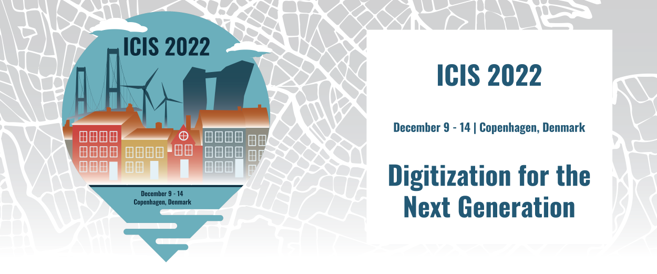Wave after wave of novel digital technologies are continually enabling new products, processes, and modes of organizing. Digital innovations rooted in mobile and distributed computing, social media, digital platforms, data analytics, artificial intelligence, blockchains, Internet of Things, cloud computing, virtual reality, and robots are reshaping and disrupting established ways of business operations. Digital innovations generate new possibilities for innovation and entrepreneurship in a wide range of domains including healthcare, education, retail, finance, manufacturing, and service industries. Indeed, organizations must innovate continuously in order to thrive. Digital innovation, entrepreneurship and transformation are ubiquitous. Work is increasingly being virtualized, digitalized, or even completely automated. New platform-based forms of digital organizing have emerged that take advantage of crowdsourcing, crowdfunding, peer-to-peer, and virtual or augmented reality. Innovation processes themselves are becoming less bounded, more open, less predictable and more fluid. New business models of the sharing economy, (e.g., Uber, Lyft, AirBnB) are disrupting traditional industries and creating new marketspaces. Our track invites researchers to re-evaluate traditional assumptions and create new theories and methods about how digital technologies shape, change, or even upend knowledge about processes and outcomes of innovation, entrepreneurship, and new business models. The IS research community is uniquely positioned to address these issues, for at least two reasons. First, the information systems field emphasizes knowledge that attends to socio-technical organizing. Second, the information systems field is inherently interdisciplinary in nature, covering behavioral, organizational, economic, and technical aspects of information and communication technologies. The research challenges related to issues of digital innovation, entrepreneurship and new business models require the joint effort of scholars with an interest in the role of digital technology, be they from fields of information systems research, management science, organizational studies, innovation management, entrepreneurship or other disciplines. We welcome interdisciplinary work, but require a salient focus on information systems in the formulation of the research objectives and contribution.
Track Co-Chairs M. Kathryn Brohman, Ph.D., Queen’s University, Canada Zhengrui (Jeffrey) Jiang, Ph.D., Nanjing University Lisen Selander, Ph.D., University of Gothenburg, SwedenSubscribe to RSS Feed (Opens in New Window)
| 2022 | ||
| Monday, December 12th | ||
| 12:00 AM |
Cascading Digital Options and the Evolution of Digital Infrastructures: The Case of IIoT Katharina Drechsler, University of Liechtenstein 12:00 AM |
|
|---|---|---|
| 12:00 AM |
Concentration and Platform Growth in the Sharing Economy: A Resource Partitioning Perspective Angela Lu, City University of Hong Kong 12:00 AM |
|
| 12:00 AM |
Creating Opportunity amid Geographic Constraint on Digital Innovation Discourses Shaila M. Miranda, University of Oklahoma 12:00 AM |
|
| 12:00 AM |
Data Liquidity: Conceptualization, Measurement and Determinants Gabriele Piccoli, Lousiana State University 12:00 AM |
|
| 12:00 AM |
Digital Affordances and Digital Capabilities: Evidence from Six AI Startups Ting Li, Queen's University 12:00 AM |
|
| 12:00 AM |
Digital Bricolage: Creating a Digital Transformation from Nothing Stan Karanasios, University of Queensland 12:00 AM |
|
| 12:00 AM |
Florian Wedel, RWTH Aachen University 12:00 AM |
|
| 12:00 AM |
Effects of CEO Political Orientation on Software-Driven Innovation Inmyung Choi, Texas Tech University 12:00 AM |
|
| 12:00 AM |
Annalena Lorson, Hasso Plattner Institute 12:00 AM |
|
| 12:00 AM |
Growing through Platform Distinctiveness in Early Saturated Markets Shiyuan(Eric) Liu, Stockholm School of Economics 12:00 AM |
|
| 12:00 AM |
Guohou Shan, Temple University 12:00 AM |
|
| 12:00 AM |
Hunting the Treasure: Modeling Data Ecosystem Value Co-Creation Can Azkan, Fraunhofer ISST 12:00 AM |
|
| 12:00 AM |
Dongyeob Kim, Case Western Reserve University 12:00 AM |
|
| 12:00 AM |
Power Distribution of IT Executives in the TMT: When Should It Be Equal? Dinh Khoi Nguyen, University of Groningen 12:00 AM |
|
| 12:00 AM |
Punctuated Multi-Layered Liminality in Digital Transformation: The Case of an Automotive Platform Thomas Haskamp, Hasso Plattner Institute 12:00 AM |
|
| 12:00 AM |
Return of the Movie Night? Analyzing the Impact of Netflix Subscriptions on Offline Movie Spending Sihan Fang, Nanyang Technological University 12:00 AM |
|
| 12:00 AM |
Striving for Global Optima in Digital Transformation: A Paradox Theory Approach Altus Viljoen, Technical University of Munich 12:00 AM |
|
| 12:00 AM |
Mengjin Gao, Korea University 12:00 AM |
|


